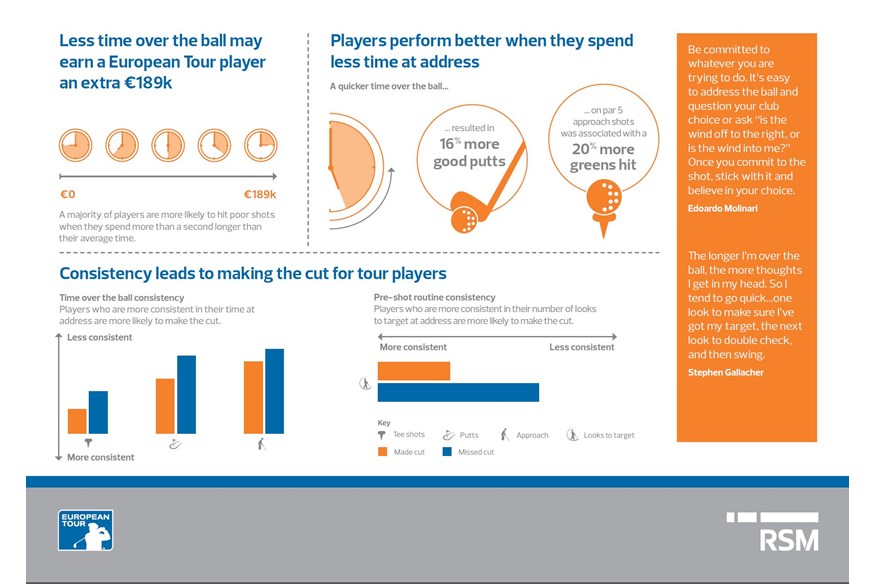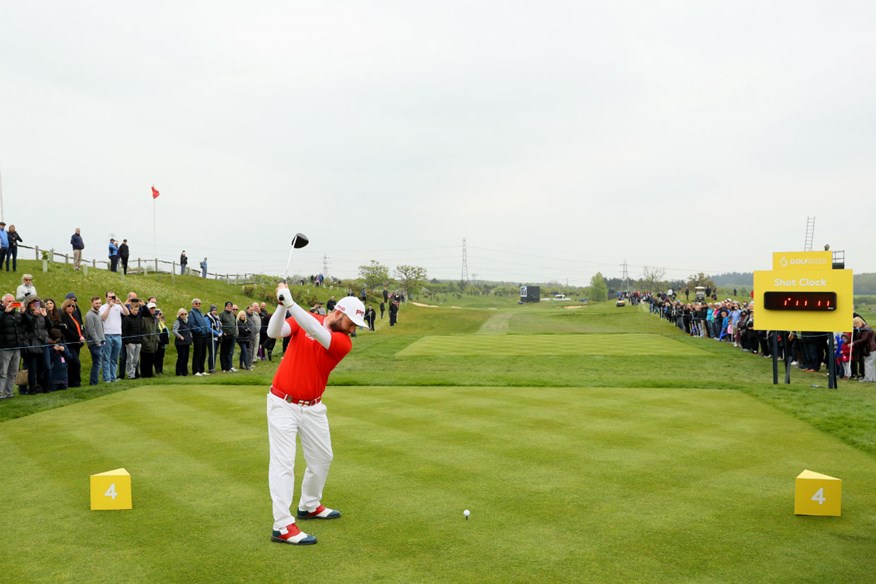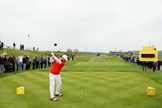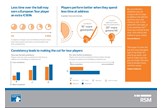New study says professional golfers could achieve more if they spent less time over the ball
Last updated:
How do you achieve more money and greater success as professional golfer? According to a new study, it’s all related to how long they spend over the ball
Professional golfers could achieve €189k more a year by saving themselves 1.2 shots on average a tournament. How? If they spend less time over the ball, according to the RSM Player Performance study conducted by RSM in collaboration with the European Tour.
➤ Weekend round-up: Two first time victories & a new Tiger video
➤ Three book their spot to 2018 Open at Carnoustie
➤ The longest hole: A 1250 mile challenge across Mongolia
➤ 10 Reasons to buy the latest issue
The study collected data on 47 European Tour professionals over five tournaments, 304 rounds of golf and 22,579 shots. Led by Dr Matt Bridge, Senior Lecturer in Coaching & Sports Science at the University of Birmingham UK, the study revealed three key findings:
1. Spending less time over the ball could earn a European Tour player an extra €189k per season.
2. Quicker shots improve performance. A shorter time over the ball across all putts results in a 90 per cent increase in the likelihood of strokes gained.
3. Consistency of time spent over the ball leads to a greater chance of making the cut. When players are more consistent in rounds one and two they are 50 per cent more likely to make the cut compared to less consistent players.

Keith Pelley, Chief Executive, European Tour, said: “I’m constantly thinking about how the game of golf will evolve and what the future looks like. Without a doubt, data analytics and the kind of insights provided from the RSM Player Performance Study will be core to that future.”
“The more data we can make available, the more the pro golfers, and amateurs, will be able to understand the nuances in their performance and hopefully gain that extra edge or advantage. The concept of understanding is core to the way RSM does business and I can absolutely see how that concept could support and help to shape the future game of golf.”
How they did it:
Across five tournaments RSM volunteers collected data on 22,579 shots concentrating on two areas of pre-performance routines;
1. Time over the ball
According to the study, evidence from recent work at the University of Birmingham showed that the longer a player spends over the ball at address the more they think about their swing. This increased focus on carrying out a movement could lead to reduced performance when well learnt automatic movements, like the golf swings of European Tour players, start to become more consciously controlled rather than free flowing.
Time over the ball was recorded by an RSM volunteer positioned inside the ropes 10-15 metres away from the player. The volunteer also recorded the lie of the ball, type of shot and distance to the hole.To further understand the effect of time spent over the ball at address on putts and tee shots, the study investigated what would happen to a player’s score if shots, where a player spent one second or more longer than their average at address, were adjusted.
2. Routine Behaviour
A pre-performance routine or more commonly known as a pre-shot routine by golfers is a sequence of shot-relevant thoughts and actions used by a player prior to a shot. A number of scientific studies have suggested that the use of pre-shot routines leads to increased performance. Pre-shot behaviours both before and after address were recorded. This included the number of practice swings, whether the player stood behind the ball for a start line and the number of looks to target after address
How they measured it
Using the data from the 20 players with more than eight rounds of data for consistency, it was found that should these shots all be set to the outcome of an average putt or shot for that distance to the hole, they would finish the tournament, on average, 1.2 shots lower.
Each player’s 2017 tournament finishes were then adjusted based on the number of strokes lower their score would be at the end of a tournament. This resulted in an average increase in winnings of €189,000 for these twenty players.
What do the players think?
Ryder Cup player Andy Sullivan said: “Could findings like these be a potential game-changer? Absolutely. As players in a complex game with so many variables, it’s crucial that we look at the data and how even tiny changes can help improve our performance. Personally, for my game, the findings have given me a lot to think about, but I think they’ll also be of interest to the amateurs that are looking for ways to get their handicaps down.”
European Tour professional Paul Waring said: “The average figure of €189,000 more a year if players improve the consistency of their routines and spend less time over the ball will certainly open a lot of eyes in the European Tour locker rooms.
“Stats are so important in all sports and especially in golf, when you think of the range of elements we need to consider in our game. RSM is leading the way with player performance research and my personal results from the study have been fascinating. I’m looking forward to working with my coaching team to make improvements in my own routine ahead of the 2018 season.”
To view the full study, click here: RSM study findings.PDF
To view the player dashboards, click here: RSM Player Dashboards.PDF


